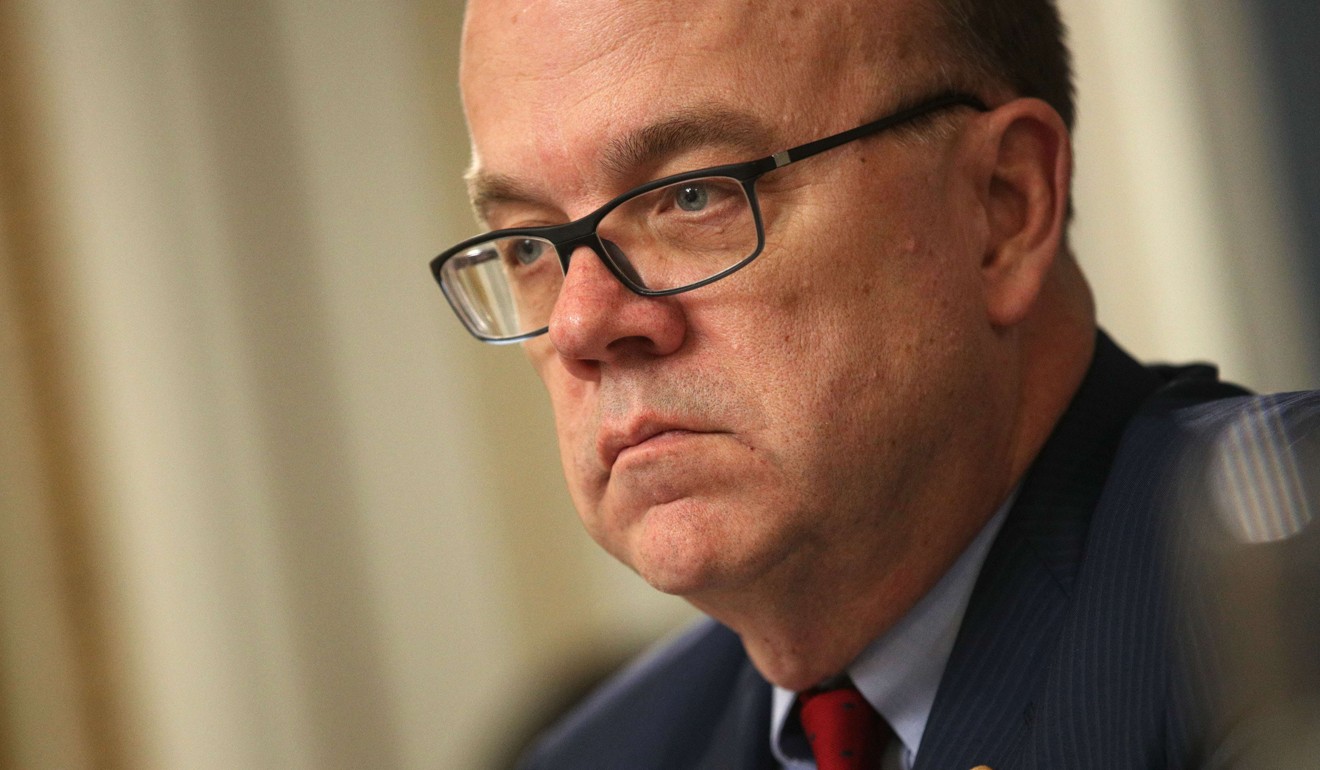
American faith groups unite to decry restrictions on religious freedom in China
- The Coalition to Advance Religious Freedom in China is formed as global scrutiny grows of the measures the authorities have taken against Uygurs in Xinjiang
- The alliance wants Trump administration to apply Magnitsky sanctions against Chinese officials
Religious rights campaigners representing various faith groups in China announced on Monday the formation of a coalition to pressure the US government into taking action against Beijing over what they call its continuing repression of religious practitioners.
Seeking an end to “business as usual” with China until the government ceases faith-based persecution, the Coalition to Advance Religious Freedom in China (CARFC) is composed of more than a dozen religious advocacy groups, including those representing the largely Muslim Uygur ethnic minority, Catholics, Protestants, Tibetan Buddhists, and Falun Gong practitioners.
“We demand that China abide by its own constitution – as well as its international legal obligations – and respect the rights of all its citizens,” CARFC coordinator Greg Mitchell said at a news conference in the US Capitol.
Among the coalition’s first steps is a direct appeal to members of the Trump administration calling for sanctions against Beijing officials.
One letter had already been sent to US Secretary of State Mike Pompeo and Treasury Secretary Steven Mnuchin, listing the Chinese officials whom the coalition believes are responsible for restricting the religious freedom of Chinese citizens, Louisa Greve of the Uygur Human Rights Project said.
“We hear the Trump administration talk about reciprocity in terms of trade,” said Bhuchung Tsering, vice-president of the International Campaign for Tibet. “We should see that reciprocity is also applied in terms of other aspects of US-China relations, whether it’s human rights, religious freedoms … Everywhere, reciprocity should be scrutinised.”
The Chinese embassy in the United States did not respond to a request for comment on the coalition or its objectives.
The right to practise religion freely is enshrined in China’s constitution, which affords protection to those who practice “normal religious activities” but does not define “normal”.
“No one may make use of religion to engage in activities that disrupt public order, impair the health of citizens or interfere with the educational system of the state”, says article 36 of the constitution.

Monday’s announcement was applauded by Sam Brownback, the US administration’s ambassador-at-large for religious freedom. Brownback, who attended the briefing, said it was “dramatic” that so diverse a spectrum of faiths had “come together to form one unit”.
The alliance’s formation comes as international scrutiny grows of the sweeping security measures Beijing has taken in China’s Xinjiang Uygur autonomous region, where up to one million ethnic Uygurs and other ethnic minorities are reported to be held in internment camps and subject to “re-education” in line with tenets of the Chinese Communist Party.
Kuzzat Altay, who lost contact with his 67-year-old father in February 2018 and believes he was sent to one of the camps, said on Monday that solidarity among faith groups advocating on behalf of the religiously persecuted in China was overdue.
Since 1949, the Chinese government had been pursuing a strategy of “divide and conquer”, said Altay, founding president of the Uygur Entrepreneurs Network.
Previously, when members of other faiths were prosecuted, he recalled, “we said ‘It’s them, it’s not us’”.
“But today, if they persecute a Christian, a Han Chinese,” he continued, “[we will say] ‘It’s not them, it is us.’ If they persecute a [Tibetan] person, we will say ‘it’s not them, it’s us.’”
Speaking in support of the coalition at Monday’s briefing, Representative Jim McGovern, a Massachusetts Democrat, said that previous US governmental responses to Beijing’s persecution of religious groups had “not been enough”, and vowed to “fight for US policies toward China that place human rights at the centre of the calculus”.
Addressing members of the coalition, McGovern said he “looked forward to working with all of you as we come up with a road map to move forward on these issues”.
McGovern, who was recently appointed chair of the Congressional-Executive Commission on China, replacing Senator Marco Rubio of Florida, was an author and sponsor of legislation in 2012 that led to the establishment of the Global Magnitsky Act.

The measure, which empowers the US administration to apply economic and travel sanctions on officials of foreign governments found responsible for human rights violations, has not yet been deployed against Chinese officials involved in the creation and institution of security policies in Xinjiang – despite campaigning from both lawmakers and advocacy groups.
Responding to questions from the South China Morning Post about whether President Donald Trump was considering using the Magnitsky Act against Beijing officials, Brownback said he did not have “anything further to announce on administration action”, but that the issue of religious persecution in China was being “discussed thoroughly in the administration”.
Monday's announcement came as a bipartisan group of lawmakers condemned what they considered to be the Trump administration’s “inadequate response to the Chinese government’s inhumane persecution of Uygurs in Western China”.
In a letter to Pompeo on Monday, members of the House Foreign Affairs Committee urged the government to take urgent action such as investigating whether any US companies were providing security and surveillance technology to the Chinese government.
“This issue is bigger than just China,” the letter said. “It is about demonstrating to strongmen globally that the world will hold them accountable for their actions”.

